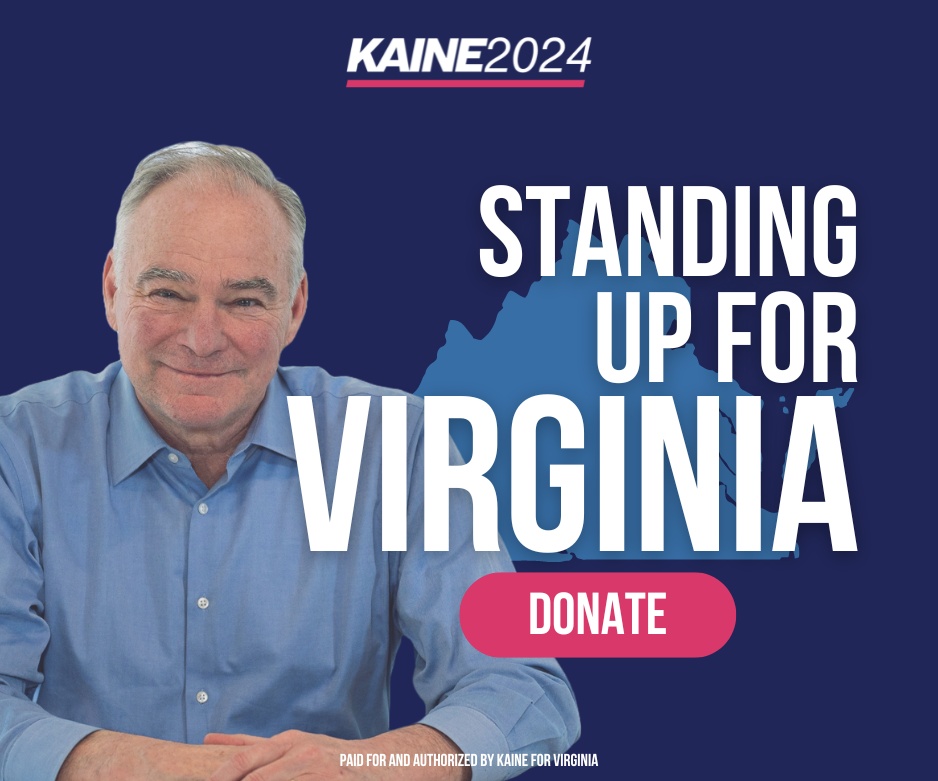
(Note: I began this last week but have a problem with my hand that makes typing difficult and painful. Apologies for posting this late.)
Election Day is two weeks behind us, but the conversation and finger pointing will go on for quite a while, if, that is, it is still acceptable to finger point in today’s absurd world (snark–you know finger pointing is still OK, but they don’t know that at FAUX or in Minneapolis).
It’s safe to say that if the national Democratic leadership, by which I mean the DNC, DSCC and DCCC, along with the major campaigns, don’t understand what actually happened on Nov 4th, nothing will change. And the leadership has no clue. So we will have more of the the debacles we had last week. It is clear that they don’t get it. And if they persist in their cluelessness, then rank-and-file Democrats need to figure out how to function around them.
It is safe to say that Nov 4th:
1. Everyone lost. But we the citizens lost big time. The 1% has gerrymandered and vote-suppressed us in numerous ways. If only they turned their creativity into solving real problems. But this is a post-Citizens United world and the GOP and their voters are too obtuse to know they lost too. More on this in a moment.
2. Kindler said it on Twitter and I second it as the main story behind Democratic losses. Everyone who ran away from Obama’s and Democrats’ accomplishments reinforced GOP lies and provided voters no reason to vote for them. They are the biggest losers. Our Congresssional and Senate candidates ran from their values and everything else that made sense for them to run on. In NC that means Hagan and Aiken and others ran like hell from a long list of accomplishments, you know, “little” things such as righting the economy after the worst recession in almost a century. The Bush recession hurt so many people. Countless millions more would have been hurt had not Barack Obama been president. She and Clay didn’t even mention the long list of Democratic values either. Hagan may try to run for Burr’s Senate seat in 2016. Lucky us. I feel bad that I wasted donations to their campaigns. I will focus on down-ticket races next time.
Next door in VA, Mark Warner almost lost by once again appealing too much to Republicans. But he doesn’t get it and never will. He also fails to recognize the emptiness of his so-called radical centrism.
3. The truth lost. We just witnessed the most deceptive campaign run in the past fifty years. The GOP and its megaphone at Fox don’t even try to tell the truth. They just repeat deceptions over and over and hope everyone forgets what the facts are. Here in NC, the Gophers pretended to support education (while massively de-funding public schools and skewering teachers who have been on the job ten years or more). They pretended they had nothing to do with the destruction of our state’s budget while making massive tax cuts for the rich. And they blamed it on, you guessed it, Kay Hagan,who wasn’t even a state rep dealing with the state’s budget, but in a US senator in Washington dealing with the nation’s problems! Her campaign never even dealt satisfactorily with the idiotic accusations. Mostly, though, Republicans tried to persuade the voters that Kay Hagan “did nothing,” even as the GOP obstructed just about everything n Washington. Did she mention that? No! It takes real gall to play that hand and the voters fell for it (sort of). Certainly Tillis would have gotten few to no votes, from rank-and-file voters, if voters really knew what he actually did. It was Thom Tillis, as leader in the House of Delegates, who lead the GOP in its vote suppression. His margin was the approximate number of votes he axed by NC’s new vote suppression law. And so…
4. The electoral process lost. It’s so much worse than having to produce a voter ID (they kicked in in VA this year and do so in NC in 2016). Many onerous NC provisions kicked in this year–so much to tell about at. I have blogged about this issue before, because the NC law has been suggested as a national template for other states. You know about gerrymandering. In the middle-of-the-night attempt to redraw the maps outside the census year, Virginia has already experienced some of the most extreme attempts at gerrymandering ever.
In NC the Republicans used fictional “voter fraud” to peel away legitimate voters from voting rolls. They stepped up the effort to challenge individual voters at the polls. They moved precincts without proper notification to voters. Students at NC State awoke election day expecting to vote on campus and could not. After protracted legal action, App State voters got their polling place back, but only at the last minute, so there was much confusion. There was confusion about whether IDs were necessary this year (they aren’t).
Reports of vote flipping occurred here. (Voters in Greensboro, where Kay Hagan lives, found their votes for Hagan showed Tillis on the next screen). And what do you know, Hagan only got 55% in her own county! I do not know how much vote flipping occurred or to what extent that was a factor. But it is curious.
5. Democracy. If the electoral process is harmed, then, thanks to Koch, Peterson, and Rove, democracy is dead. And it is almost dead. The majority of Americans did not vote.
6. The American collective brain didn’t just lose. It may no longer exist. Americans care about issues, and care in a direction that mostly favors Democrats in polls, so they chose those who would destroy what voters want?
7. Consultants. The extant way of running campaigns and the GOTV model are worthless. Their adherence to simplistic, poorly researched and blatantly wrong communications “truisms,” which defy actual human behavior, must end. Their shaming letters to voters who haven’t voted in recent elections shows how truly soulless, stupid and immoral they can be. Do they really think that playing Big Brother is the way to go to encourage voters to show up? Damn them for every vote they lost because of this crazy awful nonsense. Give voters a reason to vote, don’t act like the closest thing to a police state. A diary on this is forthcoming.
8. Phone banking and brochures lost. Phone banks do nothing but tick people off. I stopped answering my phone because it was so sickening. Why should we have to refrain from answering our own phones for two or three months of every election year? If I hate this, and other steadfast Dems I know hate it, then this method is questionable.
Professional Dems have to get out ahead in defining themselves, refute every lie and run from the strength of the Dem platform and Dem values. But stop the onslaught of phone calls.
Their glossy brochures and flyers are worthless. The materials do not give a single reason to vote for the candidates. Fire the media consultants. Nearly all of them.
9. I must separately mention email fundraising. See also Jon Stewart segment on the “all is lost” email. There is a special place hell for these guys. The DCCC and DNC border on acting as extortionists. “OFA” is not far behind. You can’t even unsubscribe from the DNC. You would have to either open an account or update your info to do that. And you know what happens if you give it anything. I now only donate to individual candidates. Why should we let the DCCC decide who gets our $? A Wall Streeter is poised to become the new DCCC chair. Imagine what candidates he would fund with our money! It is further reason that organization is lost. The media consultants cripple our personal communications systems, make it impossible for us to get through the hundreds of emails, and think we will be able to encourage voters to support them? And then they try shaming for donations sending “why haven’t you donated?” emails. It is now a shakedown. Talk about unethical. Two Democrats, one of whom had donate many times, were so sick of this practice they threatened not to vote. When will our fellow Dems learn? I will have more to say on this topic in future diaries.
10. MSNBC is dead. Done. Put a fork in it. Bizzarely, progressives don’t even watch it anyway. For some reason, they watch CNN. It turns out progressives still believe CNN, NPR and PBS. MSNBC was attracting a somewhat more conservative audience thanks to the AM Scarborough block. And so two weeks ago, MSNBC folks started parroting the corporate line too. Even Maddow and Hayes spoke of GOP inevitability. Inevitability or the perception of it, suppresses the vote. They apparently got their marching orders from their Comcast bosses. And so they helped create movement, if any, or the appearance of it.
11. Young people. Again. While their lives are being played with and ruined, they stayed home. They have been and are being abused by the privateers and testing fanatics; hoodwinked into becoming fodder for corporate wars for oil overseas, committing in advance as young as 14 (and thanks to abusive laws, the contracts are considered binding); injured and traumatized in war and not cared for afterward by a VA crippled by the GOP repeatedly underfunding it and also fighting reforms Democrats like Jim Webb fought for; cheated by payday lenders while they are overseas; crippled by usury following college; limited by increasingly low-paying jobs; and worried they will never own their own homes. They were a major focus of vote suppressionists, but too many gave up and let the vote suppressors get away with it.
12. Seniors. Boy, are seniors screwed. They voted for those who plan to privatize Social Security and turn Medicare into a voucher program. But blame also the Americans for Prosperity Dems who support cuts to Social Security, while Karl Rove was just waiting to turn their backstabbing of seniors against them in Crossroads GPS ads. You can almost see the smirk on old Karl’s face.
He ran such an ad with much success against Hagan for supporting COLA cuts. He also lied that she cut Medicare. As for Medicare, in a privatized world, wait till my cohorts try to buy an affordable policy on their own.(It’s not going to happen. That is why Medicare was needed in the first place.) Piecing together all the pieces of health care is expensive even with Medicare (Premiums for part B, Part D and Medigap) is costly to individual seniors, even with Medicare. It would be so much worse without it.
But the privateers and cutters persist. If they “succeed,” many more seniors will lose their homes and go hungry. The majority will live in poverty as they did before the advent of those two programs. How could seniors vote against their interests like that? Oh, yeh, they voted their worst selves, against gays and minorities and “big guvment.” They did it because the GOP pushed their buttons. They did it in support of war without end. And they did it despite their knowing their GOP is attempting to destroy the public education of most of their grandchildren. Of voters like that, I am ashamed.
13. Republicans lost. Their party is gone, a mere shadow of what it was decades ago. The clown car can go with Tillis, LaPage, Ernst, Perdue, Cruz and the rest of the ultimatum swilling, hostage-taking lot if they choose. But they can only win key states like NC by cheating. What is left is not the GOP. The GOP is now done.
14. Hillary. One exit poll pretends she could win in 2016. (If she won we would be hosed too.) She’s to the right of Obama for Christ’s sakes. If Democrats continue to pretend they are Republicans (and Hillary is one of the old DLC Democrat and super hawks, then we might as well pack up and go home. (And KathyinBlacksburg certainly does not recommend that!)
There are many more losers. I will have more to say about some of them in the coming days.
PS There were winners in my area of NC. Our state delegate and state senators were reelected. Both are Democrats. In my county, we took over the County Board of Commissioners. We won the school board. We re-elected our sheriff. We got three judges on the state Supreme Court (one is in recount). In adjacent Wake County, a fantastic Democratic town councilwoman was elected to the House of Delegates. She defeated one of the GOP’s supposed rising stars. Wake County flipped the County Commission to Democratic. Building up the farm team matters. All of these individuals will be tomorrow’s leaders.
None of this good news means I take lightly the results of two weeks ago. It has been a difficult two weeks. But today I got an email from our neighborhood Democratic Club president, who lead us in a remarkable GOTV operation. In the letter he said we would hear from him Jan 1. We can rest now he says. But Jan one the sleeping giant awakes! Indeed.

 flexibility on how to meet standards. Logically, such an analysis should consider a variety of solutions to cut power plant pollution, including fast-growing renewable energy sources that have created 290,000 jobs in neighboring mid-Atlantic states in recent years.
flexibility on how to meet standards. Logically, such an analysis should consider a variety of solutions to cut power plant pollution, including fast-growing renewable energy sources that have created 290,000 jobs in neighboring mid-Atlantic states in recent years.

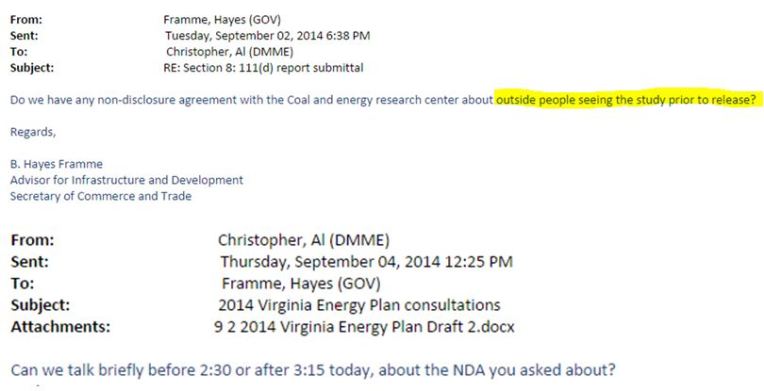

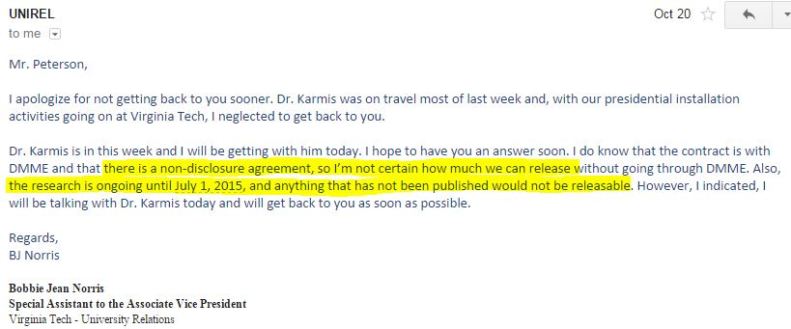
 Here are a few national and Virginia news headlines, political and otherwise, for Wednesday, November 19.
Here are a few national and Virginia news headlines, political and otherwise, for Wednesday, November 19.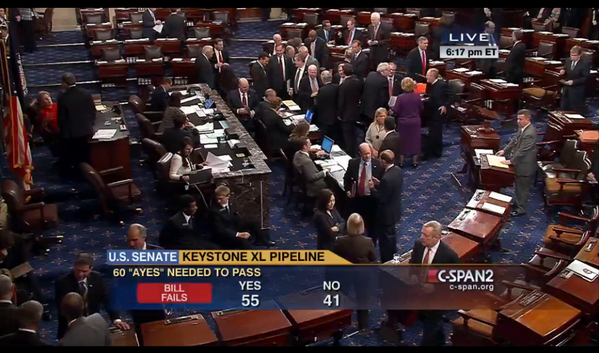

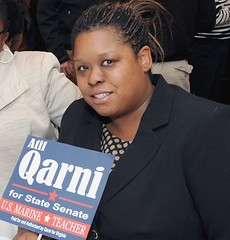

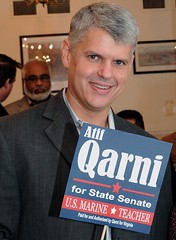
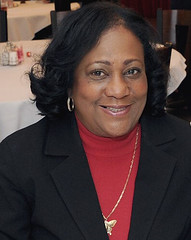
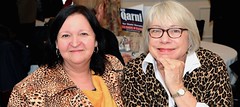

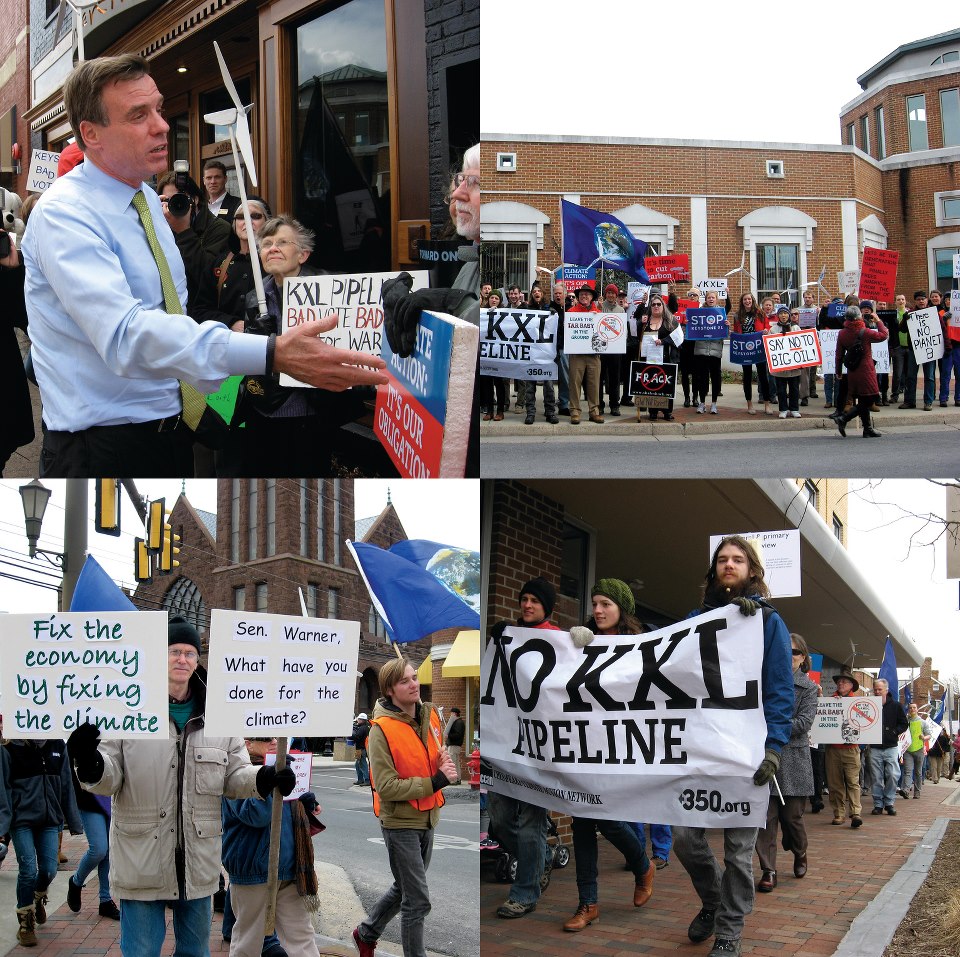 At least
At least 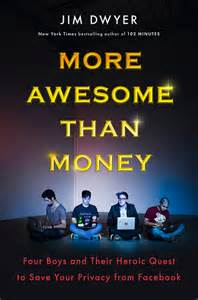 I just finished reading the fascinating new book
I just finished reading the fascinating new book  Question #6: So why did this strategy fail?
Question #6: So why did this strategy fail?


